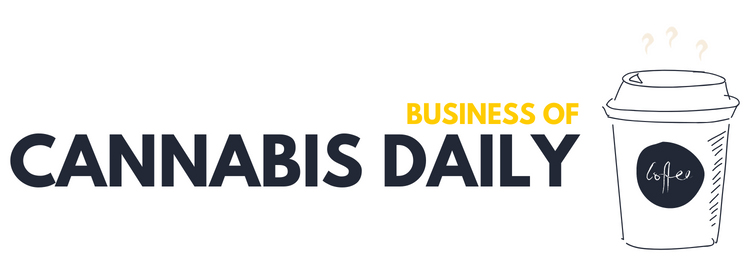
CRYSTAL CLEAR
Biden’s drug czar says cannabis ‘clearly’ has medical value and scheduling review must follow science
Following Biden’s recent announcement that he will be launching a review of the schedule status of cannabis, Marijuana Moment reports that the White House drug czar has stated that it is key to ensure that any decision that’s made “filters into criminal justice as well.”
According to the publication, Rahul Gupta, director of the Office of National Drug Control Policy (ONDCP), said that it is “really important for us to look at how many people have been serving sentences and have been impacted for non-violent drug crimes,” … “So it’s really important to follow the science and, at the same time, ensure that our science and evidence filters into criminal justice as well.”
The czar emphasized that Black people are significantly more likely to be arrested over cannabis than white people despite comparable rates of consumption.
He went on to say: “The simple fact is that you follow the research that you have, and you make decisions based on the science that is available to you. And we do know that, today, we have more research available than we had just simply 10 years ago. So it is time, as the president has asked for, to take a look at the scheduling of marijuana as a Schedule I drug.”

Get the latest on the companies, brands, people and trends driving the cannabis industry in your inbox everyday.
Enjoy Cannabis Daily each morning at 7 a.m.
RESCHEDULING CANNABIS
Will Biden see through cannabis decriminalization before the end of his term?
Biden’s directive to reevaluate the federal status of cannabis as a Schedule I drug has the potential to change the future of American cannabis policy, writes Lester Black for Five Thiry Eight.
The move has made legal experts like Daniel Shortt, a cannabis attorney based in Seattle, optimistic about the chances cannabis could be removed from Schedule I, who commented that: “This is the most consequential piece of federal cannabis policy since 1937, when federal pot prohibition began.”
Black points out that the medical effectiveness of cannabis could be why the directive fails, but that there has been major medical cannabis developments in the last six years since the last review, with nearly half of oncologists recommending medical cannabis to their cancer patients.
Black writes: “In theory, a drug’s scheduling should be guided by scientists making decisions based on the best available data. But politics has always affected federal drug policy, whether it’s Nixon outlawing pot in the 1970s or Congress creating the discriminatory disparity between crack and cocaine penalties. But this time, with Biden’s announcement, the politics are in pot’s favor.”
UNPAID BILLS
Canadian cannabis producers’ unpaid tax bills soar
A growing number of Canadian cannabis businesses are failing to pay their federal excise taxes on time, reports MJ Biz Daily. The publication highlights this failure to pay on time indicates that companies are struggling and deferring their tax bill to meet needs such as paying employees.
The unpaid taxes amount to nearly CA$100m (USD$72.4m) for the first half of the federal fiscal year, significantly higher than last year’s total of CA$52.4m.
According to the publication:
- 259 cannabis licensees were required to remit excise duty under the Excise Ac – equating to about two-thirds of Canadian cannabis businesses struggling to make ends meet.
- The number of cannabis companies with a tax debt has doubled every year since Canada legalized adult use in 2018.
- As of March 2019, the figure stood at 12, rising to 33 in 2020, 68 in 2021 and 141 in March 2022.
- Excise tax debt could reach CA$200m before the end of the fiscal year in March 2023.
Dan Sutton, CEO of British Columbia-based cannabis producer Tantalus Labs, called the excise burden “extreme” and in need of reform, stating: “This new data paints a very clear picture that the excise burden is so extreme on producers that they are forced to defer their excise taxes payable. This is problematic, because it’s not just the limited-liability corporation that’s liable for excise due; it is also the directors and officers of the company.”
DOMESTIC SUPPLY
Fears supply issues will leave Germany’s adult-use cannabis market in starting blocks
With details on Germany’s proposed adult-use cannabis market set to be published soon, BusinessCann explores a potential challenge the market may face.
Highlighting that mature markets such as Uruguay and Canada still see illicit and home-grown cannabis sales. The publication notes that the retail price of cannabis will play a large part in propagating this shift, but says that the biggest potential stumbling block will be securing adequate supplies.
German cannabis lawyer Kai-Friedrich Niermann, who co-authored a paper on legalization with Burkhard Blienert, the Federal Drugs Commissioner who is currently drafting its cannabis laws, told the publication that overcoming the market supply obstacles will be impossible within a timeframe of early 2024 for the enactment of legislation.
Suggested ways Germany can overcome this hurdle include:
- To withdraw from the SCND and then re-enter with a ‘cannabis reservation’ emulating both Canada and Uruguay.
- Brand the whole adult-use market as a nationwide ‘scientific’ pilot project.
- To secure supplies from Canada where its licensed producers have huge stocks of unsold cannabis.
- The possibility of a bi-party, inter se modification which allows member states of the UN to sign agreements with each other which overcome UN rules.
























